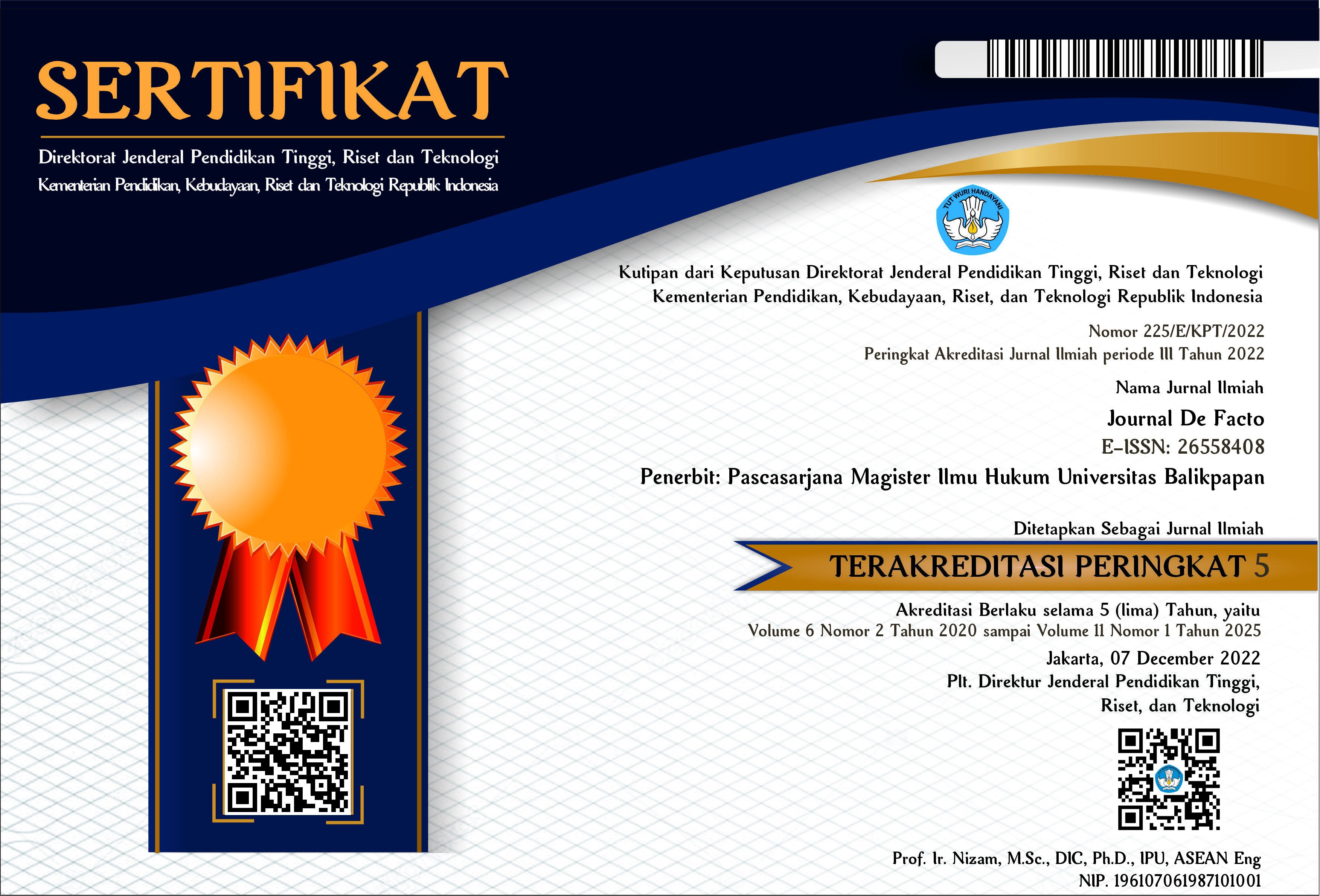IMPLICATIONS OF THE CONSTITUTION FOR POLITICAL NEUTRALITY IN THE DYNAMICS OF LAW AND DEMOCRACY
DOI:
https://doi.org/10.36277/jurnaldefacto.v10i2.189Keywords:
Democracy, Legal Dynamics, Political Neutrality, Ethics Reform, National Legal SystemAbstract
This study seeks to analyse the constitutional provisions on political neutrality within the framework of Indonesia's democratic process, particularly as it pertains to the establishment and upkeep of a democratic society founded on social fairness and the preeminence of legal principles. This study examines applicable laws, legal theories, and police procedures via a normative-philosophical and descriptive analytical lens. Findings highlight the need of political neutrality in state administration and bureaucracy for maintaining a just and fair democracy. Government impartiality and honesty can only be restored by overhauls to political ethics and the inner workings of bureaucratic politics. In light of Pancasila and the Constitution of the Unitary State of the Republic of Indonesia (1945), this conclusion stresses the need of cooperation across different parts of the country in order to establish a national legal system that upholds democracy and social justice.
Downloads
Published
How to Cite
Issue
Section
License
Copyright (c) 2024 Journal de Facto

This work is licensed under a Creative Commons Attribution-NonCommercial 4.0 International License.











